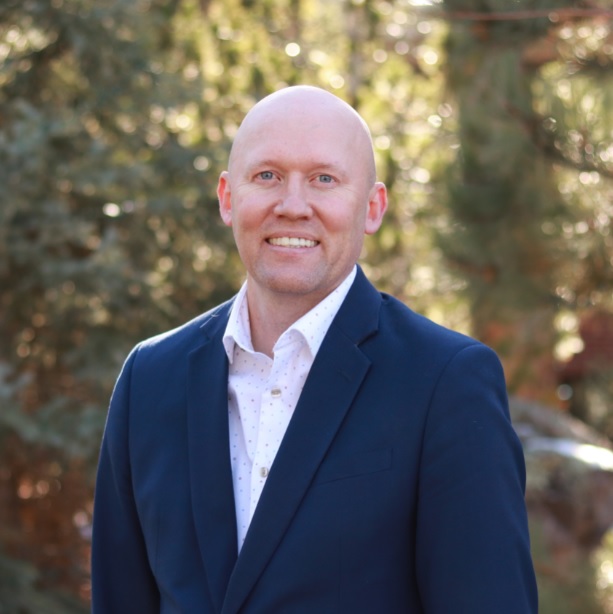At first, Arizona State University business administration alumnus Brad Stoddard was against moving to a rural area. Born and raised in Mesa, Arizona, he was used to city life, with all its amenities and conveniences. But after spending a few months in the small Arizona city of Globe, where he only had to drive through one stoplight on his commute to work — instead of 70 miles of freeway and gridlock — he was hooked.
There were other perks, too.
“It’s so fun to be able to go to a restaurant and know the people there when you walk in,” Stoddard said. “There’s really a true sense of community.”
Unfortunately, what there isn’t a lot of in rural areas is access to mental health care. It’s something that has always been close to Stoddard’s heart, with several members of his family experiencing depression throughout their lives and not always being able to get the care they needed. So when his friend and colleague Cooper Johnson came to him a few years ago with the idea for a company that could meet that need, Stoddard jumped at the opportunity, leaving a comfortable job as the CEO of a surgery center to found Phoenix Mental Health and Wellness.
ASU alumnus Brad Stoddard
“There’s a definite need in rural Arizona,” Stoddard said. “A lot of the populations in rural areas are underserved when it comes to mental health. They either had to go without or had to drive into the Valley to get care.”
That’s something ASU College of Health Solutions Clinical Assistant Professor Matthew Martin can attest to. He’s in charge of behavioral health integration for Project ECHO, a new model of medical education and health care delivery that uses telecommunication to share knowledge across disciplines and physical space.
“Arizona ranks near the bottom in the nation for mental health,” Martin said. “And that is likely a reflection of the access problems in rural areas, which are usually due to a lack of providers or there only being one provider to serve an entire town or city.”
Like Project ECHO, Phoenix Mental Health and Wellness leverages technology to increase access to mental health care, allowing patients to receive full psychiatric services via telemedicine. Before COVID-19 came around, many were still wary of the practice, but the pandemic has both increased acceptance of its use and caused a rise in the number of people seeking it out.
“If there’s a silver lining to COVID, the adoption of telemedicine has increased dramatically,” Stoddard said. “Now we can do HIPAA-compliant video conferences with patients from their own home and get them the care they need. At the same time, so many people now have new stressors in their life that they didn’t have before: parents with kids at home doing online school, spouses working from home together, loss of income; it’s also been a rough year socially and politically speaking.”
Since January 2019, Phoenix Mental Health and Wellness has grown from 12 patients to about 1,500. And while their focus is telemedicine, they do have brick and mortar clinics as well; they opened their first one in Flagstaff, then a second shortly after in Show Low. And even though their priority is meeting the mental health care needs of rural populations, they have had enough demand for services that they’re planning to open another clinic in Phoenix and possibly Tempe.
“With college kids, we see a lot of them getting into the habit of doom scrolling,” Stoddard said. “It’s a legitimate concern because people are just reading bad news after bad news, and it does cause a lot of depression for college students, so we’re looking to help out there, too.”
Unlike some other psychiatric companies, Phoenix Mental Health and Wellness provides both medication management and psychotherapy. But what really makes Phoenix Mental Health and Wellness unique, Stoddard said, is the care and effort they put into recruiting their providers.
“We screen every provider we hire to make sure they’re board certified, and also that they’re just a nice person,” he said. “It sounds kind of cheesy, but when you are opening yourself up to a health care professional, you need to be able to trust that they care about you in order to connect with them. And all of our providers are good people.”
Learn more about Phoenix Mental Health and Wellness and the services they provide.
Top photo courtesy of Pexels.com
More Health and medicine
ASU team part of nationwide study looking at Type 2 diabetes in youth
Near the end of an interview in which he talked about the work his team will be doing to tackle the rise in Type 2 diabetes among youth, Arizona State University Professor Gabe Shaibi answered why…
Leading the way in wellness: ASU highlighted in The Princeton Review's 2025 Mental Health Services Honor Roll
Being a college student isn’t easy — navigating new routines, people and places can be a challenge, especially if the right support system is not in place. That's why Arizona State University is a…
New Indigenous health dashboard offers robust database for scholars
By Nicole Greason and Kimberly Linn A team at Arizona State University’s College of Health Solutions and American Indian Studies program has created a new tool to aid researchers…

